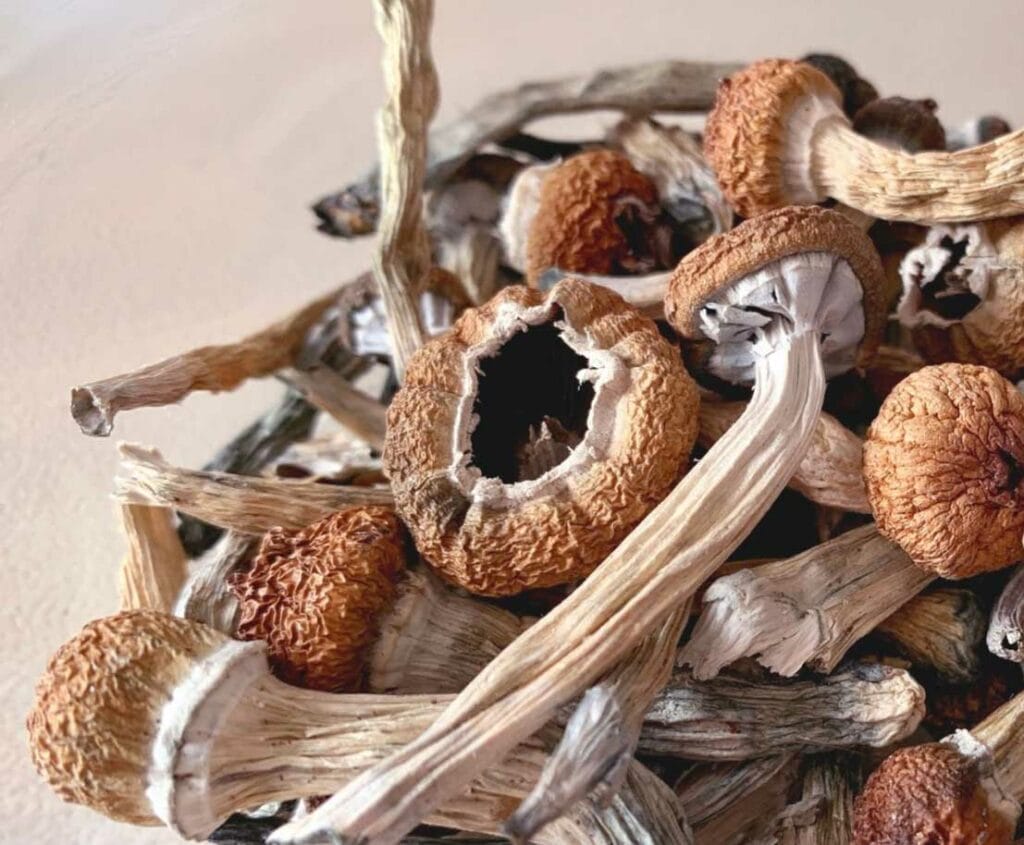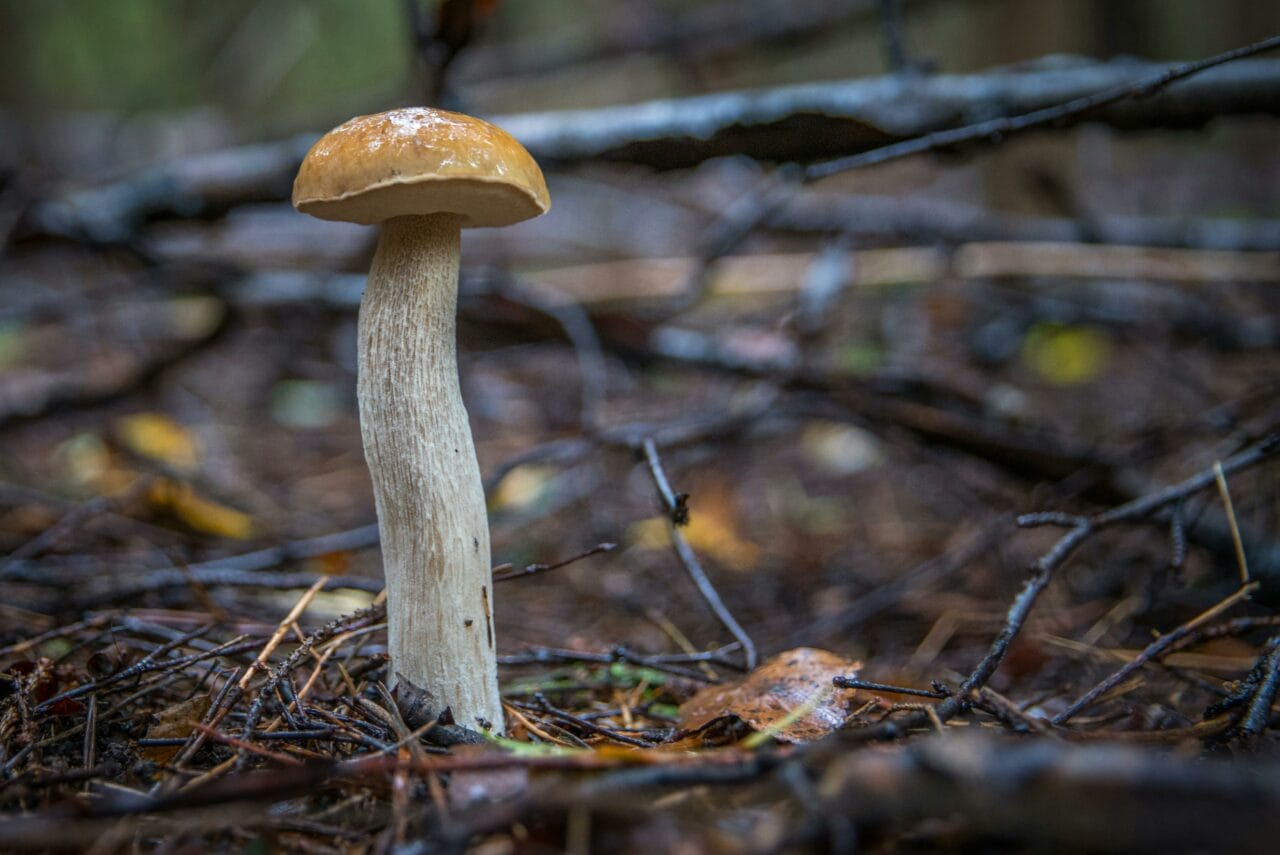In-depth studies into the impact of psilocybin on the human brain continue to yield extraordinary findings. A study conducted in 2023 by Washington University has shown that psilocybin can reduce activity in the part of the brain responsible for memory and perception for over a week. This extended interruption could be related to the mood-enhancing properties of the substance.
This recent breakthrough paves a new way for individuals with mental health conditions, presenting them with a broader spectrum of treatment options. The increased flexibility of the brain, coupled with the mood-boosting effects, could potentially offer longer-lasting relief than traditional medications. Moreover, it can be cost-effectively purchased from shrooms online.
[toc]
Key Takeaways:
- Desynchronization acts as a reset function, enabling individuals with depression to establish healthier, more dynamic neural connections.
- It contributes to the treatment of depression, anxiety, PTSD, and addiction by fostering neuroplasticity and modifying neural connections.
- Patients with depression have reported that a single dose can enhance positive attitudes, mood, and behavior.
Decoding Magic Mushrooms
This type of fungi is recognized for its psychoactive components, mainly psilocybin and psilocin, which can trigger altered states of consciousness. These changes can lead to visual and auditory hallucinations, shifts in perception, and intense emotional experiences.
These mushrooms have been utilized in various cultural and spiritual practices for centuries and are commonly known as “shrooms,” “mushies,” or “hongos.”
The Mind-altering Component
What makes these fungi captivating is their mind-altering component. When ingested, it converts into psilocin, which interacts with serotonin receptors (5-HT2A receptor). This interaction causes alterations in brain connectivity and perception, leading to the hallucinogenic effect and potential therapeutic advantages.
It disrupts standard connectivity, leading to enhanced communication between previously unrelated brain regions, fostering new alleviating various viewpoints and enhancing cognitive flexibility. This interruption, while inducing a temporary state of changed awareness, allows for deep realizations that can function as a therapy for disorders such as depression, PTSD, and anxiety.
This compound has been thoroughly investigated in countless clinical trials, even receiving Health Canada’s acknowledgement as a revolutionary medication.
Recent Research on Brain Activity During and After Ingestion
The Washington University School of Medicine executed a research study to probe the immediate and sustained neurobiological and psychological impacts of psilocybin. The study aimed to comprehend the influence of these substances on synaptic associations and the permanence of this effect.
Methodology
Healthy young adult subjects were given psilocybin and methylphenidate on separate occasions and underwent regular MRI scans (around 18 times) before, during, in between, and after each dosage.
Functional MRI (fMRI) was employed to monitor synaptic connections and activity at various intervals. This allowed for a thorough assessment of immediate and continuous brain network effects.
While inside the scanner, participants completed a simple auditory-visual matching task. They executed this task accurately during the drug sessions.
Key Findings
- Immediate Alterations: There was a significant disturbance in connectivity across cortical and subcortical networks, with alterations more than three times larger than those observed with methylphenidate.
- Desynchronization: A considerable drop in network synchronicity, particularly in the “default mode network,” was noted. This network, which comprises interconnected regions like the thalamus, basal ganglia, cerebellum, and hippocampus, is typically more active during self-reflection and mind-wandering than when concentrating on specific tasks.
- Task Influence: Despite the observed alterations in functional connectivity, participants’ responses during the auditory-visual matching task remained steady under the active substance. This implies that the changes in functional connectivity are unlikely due to modified neurovascular coupling.
- Persistent Effects: A lasting decrease in connectivity between the anterior hippocampus and DMN was detected for several weeks, but it resumed normality after 6 months.
- Methylphenidate results in immediate changes that are less substantial and less frequent in the context of brain connectivity.
Insights from Experts
Dr. Joshua Siegel, a psychiatrist at Washington University School of Medicine in St. Louis and the primary author of the study, theorizes that psilocybin promotes a more adaptive form of brain connectivity. Enhancements in connectivity could potentially assist in treating depression. By boosting the brain’s adaptability, it could potentially facilitate long-term cognitive alterations. This desynchronization could act as a reset button for those suffering from mood disorders, fostering healthier and more dynamic connectivity.
Effects of Psilocybin on the Brain
The active compound changes an individual’s perception of time and space, and modifies their sense of connection to their environment. Although these subjective experiences usually dissipate quickly.
It impacts cells that respond to serotonin, a vital chemical messenger. Briefly activating receptors in areas of high density, such as the medial frontal lobe, triggers long-lasting effects. This activation interrupts established pathways and stimulates the formation of new connections.
Desynchronization was diminished when participants performed a basic word-picture matching task, as the default mode network was not active during this task. This might explain why reducing external stimuli—like wearing eyeshades—can intensify engagement with the psychedelic experience.
Lasting Effects on Brain Disruption
While the immediate effects fade once the drug wears off, the aforementioned study found that disruptions in connectivity between the DMN and the anterior hippocampus—a region associated with memory and emotion—can continue for several weeks.
This prolonged alteration could promote brain plasticity, potentially facilitating long-term changes in cognitive and emotional processing. These sustained experiences could contribute to the drug’s therapeutic potential.
Dr. Petros Petridis, a psychiatrist at NYU Langone Center for Psychedelic Medicine, suggests, “Psilocybin could present an opportunity for change, which a therapist can then help the patient traverse.”
Potential Advantages for Mental Health Disorders
The impact could also affect emotional processing, with changes in the activity of brain regions involved in emotion regulation. For example, it can affect the amygdala, a region in charge of processing emotions, which could lead to changes in emotional responses and mood.
These modifications in emotional responses could potentially Let’s tackle some common mental health issues that Canadians face.
- Depression: Regular therapy sessions and moderate to high dosage of medication over a span of 14 months can uplift mood, encourage positive thinking, and improve behaviour.
- Anxiety Disorders: Altering perceptions of self and reality can potentially alleviate anxiety, especially when related to existential or end-of-life fears. This shift can lead to a better understanding and acceptance of individual apprehensions.
- Post-Traumatic Stress Disorder (PTSD): Promoting fear extinction can aid in the rapid and sustained reduction of emotional responses to traumatic memories. It can potentially stimulate neuroplasticity in the hippocampus, enhancing the brain’s ability to create new connections and adapt.
- Obsessive-Compulsive Disorder (OCD): Disrupting rigid neural pathways and promoting cognitive flexibility might decrease obsessive thoughts and compulsive behaviours.
- Substance Use Disorders: Profound insights into the nature of addiction can potentially aid in battling substance abuse, fostering a change in perspective.
Why Choose Magic Mushrooms to Ease Depression Symptoms?
Are you in search of mushroom products to help combat depression? The Psilocybe cubensis range, known for its significant role in spiritual and religious rituals, offers trustworthy strains.
| Type of Magic Mushrooms | Description | Effects |
| Blue Meanies | Identified by a 4 cm wide smooth surface covered with blue bruising, which gives it its name. | Induces joy, hallucinations, happiness, and intense laughter |
| Golden Teacher | Famed for its spiritual or shamanistic impacts, it’s a staple in the Psilocybe cubensis community. | Provokes bright colours, strong emotions, visual distortion, and a feeling of lightness or giddiness |
| Albino Zilla | Sturdy and thick, completely ghostly white with some dark bruising. | Stimulates creativity, body buzz, sociability, euphoria, and positivity |
| Atlantic Treasure Coast | Native to the Southern Florida Gulf Coast, it displays pale caramel-coloured caps. | Enhances mood, induces pleasure and stimulation, enhanced visually |
| Brazilian Psilocybe Cubensis | Originating from Brazil and several South American countries, it is an ideal selection for beginners. | Promotes joy, increased awareness, creativity, and relaxation. |
In addition to the dehydrated psilocybin-infused mushrooms, magic mushrooms can also be consumed through edible shroom products, shroom tea, and other forms. Explore these user-friendly products available for purchase:
- Wonder – Birthday Cake Chocolate Bar
- Wonder – 3000mg Cherry Cola Gummies
- Bright Future – 3000mg Dark Chocolate & Sea Salt
Safely Use Online Shrooms to Alleviate Your Anxiety, Depression, and PTSD
Recent findings have deepened our understanding of the way Psilocybe cubensis’s active compound influences the brain. A disruption that persists for a week may result in a temporary consciousness alteration. This psychedelic experience can encourage profound reflections and provide potential benefits for conditions such as depression, PTSD, and anxiety.
Are you in search of a platform to purchase shrooms online in Canada? Get Magic Mushrooms Canada is committed to enhancing mental health by providing superior quality magic mushrooms as a potential therapeutic aid for anxiety, depression, and PTSD. Our aim is to leverage the unique characteristics of these fungi with our meticulously curated selection of online magic mushrooms.
Frequently Asked Questions
Can combining Psilocybe with antidepressants deliver improved results?
At present, there’s insufficient data to validate a harmful interaction between antidepressants (SSRIs or others) and Psilocybes. The active compound also doesn’t increase the risk of serotonin syndrome when consumed with a single antidepressant. Most modern clinical trials involving shrooms request participants to slowly decrease their SSRIs or exclude them from the study.
Is it feasible to microdose Psilocybe shrooms?
If you’d rather not experience the full psychedelic effects of dried shrooms, microdosing can be an option.
- Procure and Process: Obtain mushrooms and reduce them to a fine powder.
- Determine Dosage: Measure approximately 0.1 to 0.3 grams (100-300 mg) of dried mushrooms.
- Set a Dosing Schedule: Establish a consistent regimen, such as dosing every three days or following a two-days-on, one-day-off pattern.
- Measure and Consume: Use a precision scale for accurate measurements and consider ingesting the dose on an empty stomach for maximum absorption.
- Monitor and Adjust: Keep a journal of your experiences and adjust the dosage or schedule based on your observations.
Is it safe to buy magic mushrooms online for therapeutic use?
Buying online can be safer than purchasing from unverified sources.
- Thoroughly review product information, including origin and quality. Reliable sellers offer lab test results or other forms of assurance to validate the genuineness and purity of their psychedelic mushrooms.
- Your payments and personal details are protected with website encryption that safeguards your private and financial data.
- To prevent ingesting harmful strains, only purchase from credible sources. Verify customer reviews and contact the dispensary to ensure their trustworthiness.
Articles You Might Find Useful:





